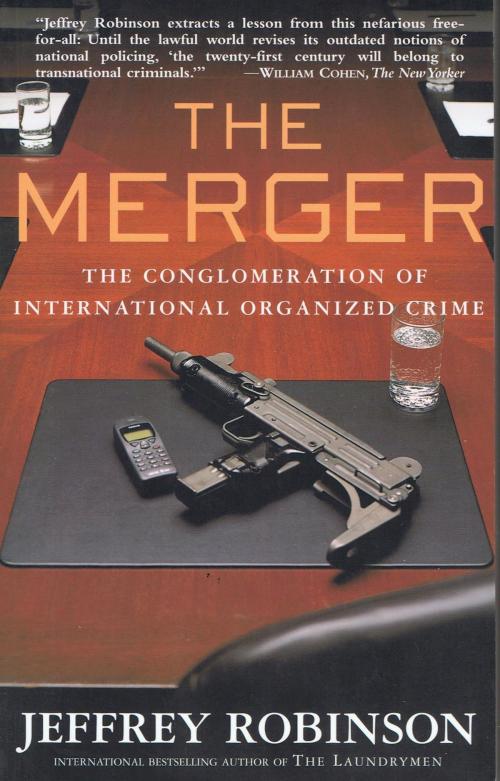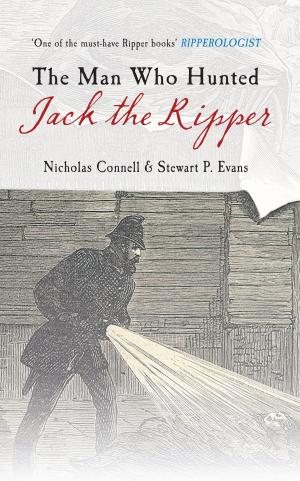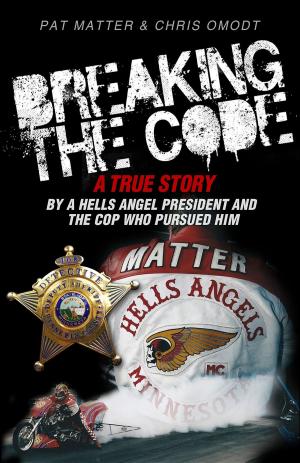The Merger: The Conglomeration of International Organized Crime
Nonfiction, Social & Cultural Studies, True Crime| Author: | Jeffrey Robinson | ISBN: | 9781301537310 |
| Publisher: | Jeffrey Robinson | Publication: | May 3, 2013 |
| Imprint: | Smashwords Edition | Language: | English |
| Author: | Jeffrey Robinson |
| ISBN: | 9781301537310 |
| Publisher: | Jeffrey Robinson |
| Publication: | May 3, 2013 |
| Imprint: | Smashwords Edition |
| Language: | English |
A shocking true account of a global network of unimaginable proportions.
Amazon.com Review:
When telecommunications companies merge, the news is immediately analyzed by the media and government agencies. Owners of the companies' stock immediately vote on the wisdom of the move by buying or selling. But when criminal organizations merge and make their operations global, it takes years for law enforcement to figure out what happened, who was involved, and what the implications are. Jeffrey Robinson is an authority on international crime, and The Merger sometimes reads like a crime novel. It seems strange to imagine that Mexican drug traffickers would be working closely with Thai postal workers; that a billion dollars a month in drug money would be laundered from Russian gangs through Greek Cypriots and then moved on to respectable financial centers such as London and New York; that Colombian drug cartels would get kerosene--an important ingredient for making cocaine--from Turkmenistan by way of Argentina; that Eastern European criminals would claim to be Jewish so they could get Israeli passports and launder money in the Holy Land. Robinson concludes with a note that international drug trafficking is growing so fast it now represents 2 percent of the world's economy. If this book doesn't keep you up at night, or at least raise some serious goose flesh, you're made of pretty stern stuff. --Lou Schuler
From Publishers Weekly:
It's not only the free market that is being globalized, but illegal markets as well: transnational crime expert Robinson sounds the alarm in this well-researched and genuinely chilling treatise. Veteran author Robinson (The Laundrymen, etc.) pursues a provocative thesis: where the general public has perceived the influence of traditional crime syndicates as waning, disparate developments - primarily the end of the Cold War and banking's growing reliance on computers - have made it possible for discrete criminal entities to merge, much like legitimate corporations do. Robinson plunges into a sordid history of global crime, identifying key players and the labyrinthine attempts by international law enforcement to play "catch-up." Chapters detail the nefarious activities of the Russian "Mafiya," Colombian and Mexican drug cartels, Asian Triads, Japanese Yakuza, Nigerian confidence rings, Hell's Angels, rogue factions of the St. Regis Mohawk tribe and the surviving, leaner and meaner Cosa Nostra (and its Italian relatives). He presents a wealth of evidence that these groups have found ways to accommodate one another in numerous activities worldwide - identity theft, credit card fraud, smuggling, bribery and counterfeiting, all of which are underwritten by enormous drug profits. More importantly, he explains, the cartels have been able to refine their money laundering, tax evasion and offshore banking crimes. All the while, Robinson provides an exciting and unsettling glimpse of our future as a wired and globalized paradise for thieves.
A shocking true account of a global network of unimaginable proportions.
Amazon.com Review:
When telecommunications companies merge, the news is immediately analyzed by the media and government agencies. Owners of the companies' stock immediately vote on the wisdom of the move by buying or selling. But when criminal organizations merge and make their operations global, it takes years for law enforcement to figure out what happened, who was involved, and what the implications are. Jeffrey Robinson is an authority on international crime, and The Merger sometimes reads like a crime novel. It seems strange to imagine that Mexican drug traffickers would be working closely with Thai postal workers; that a billion dollars a month in drug money would be laundered from Russian gangs through Greek Cypriots and then moved on to respectable financial centers such as London and New York; that Colombian drug cartels would get kerosene--an important ingredient for making cocaine--from Turkmenistan by way of Argentina; that Eastern European criminals would claim to be Jewish so they could get Israeli passports and launder money in the Holy Land. Robinson concludes with a note that international drug trafficking is growing so fast it now represents 2 percent of the world's economy. If this book doesn't keep you up at night, or at least raise some serious goose flesh, you're made of pretty stern stuff. --Lou Schuler
From Publishers Weekly:
It's not only the free market that is being globalized, but illegal markets as well: transnational crime expert Robinson sounds the alarm in this well-researched and genuinely chilling treatise. Veteran author Robinson (The Laundrymen, etc.) pursues a provocative thesis: where the general public has perceived the influence of traditional crime syndicates as waning, disparate developments - primarily the end of the Cold War and banking's growing reliance on computers - have made it possible for discrete criminal entities to merge, much like legitimate corporations do. Robinson plunges into a sordid history of global crime, identifying key players and the labyrinthine attempts by international law enforcement to play "catch-up." Chapters detail the nefarious activities of the Russian "Mafiya," Colombian and Mexican drug cartels, Asian Triads, Japanese Yakuza, Nigerian confidence rings, Hell's Angels, rogue factions of the St. Regis Mohawk tribe and the surviving, leaner and meaner Cosa Nostra (and its Italian relatives). He presents a wealth of evidence that these groups have found ways to accommodate one another in numerous activities worldwide - identity theft, credit card fraud, smuggling, bribery and counterfeiting, all of which are underwritten by enormous drug profits. More importantly, he explains, the cartels have been able to refine their money laundering, tax evasion and offshore banking crimes. All the while, Robinson provides an exciting and unsettling glimpse of our future as a wired and globalized paradise for thieves.















